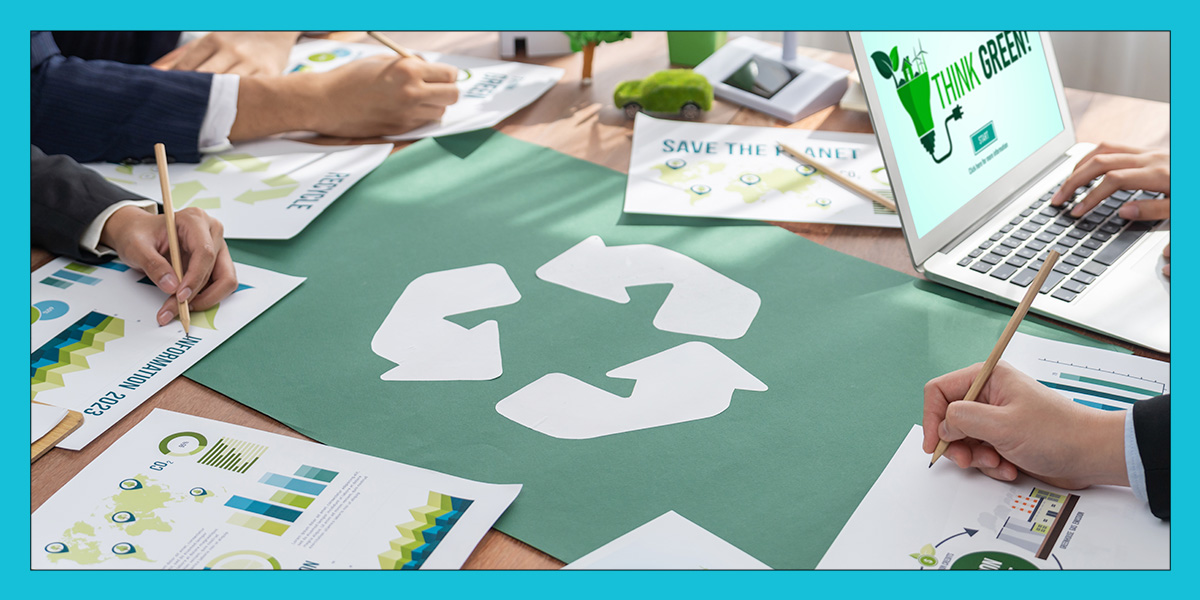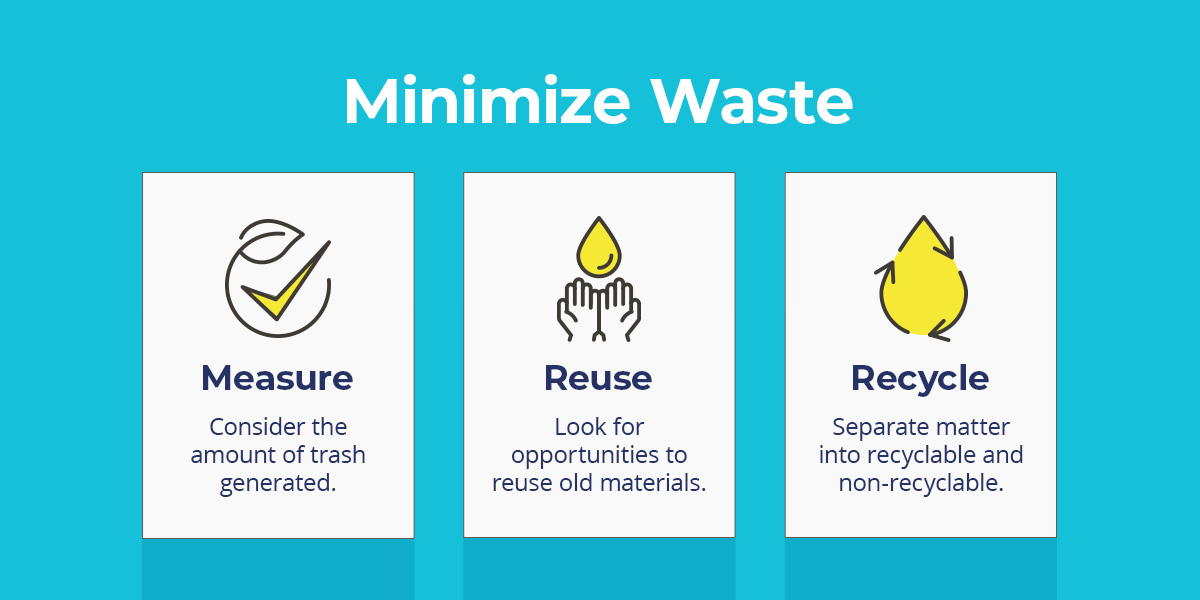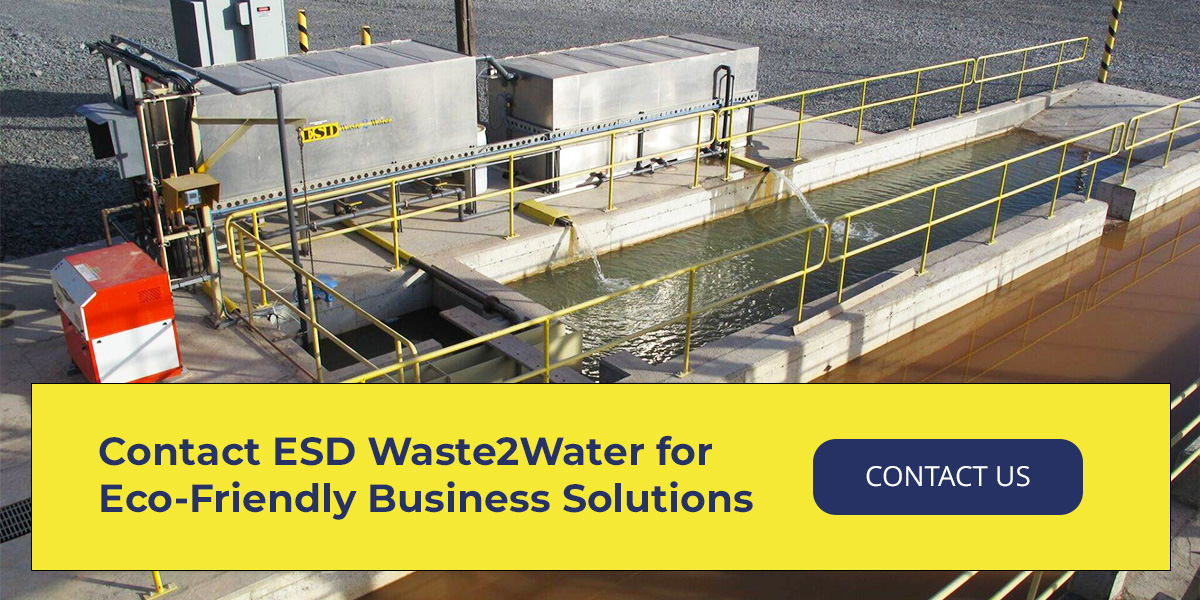
The benefits of becoming a sustainable business are far-reaching. Companies that embrace eco-friendliness show commitment to the environment and the future, boosting customer sentiment and reducing costs. Switching to sustainable processes can help your business drive growth and feel good about its processes.
Let’s explore ways that your business can be gentler and more accommodating to the environment below.
1. Conserve Water
Water conservation is one of the best ways for a business to become more sustainable. Homes and businesses often produce wash water, also known as wastewater. The most simple definition of wastewater is previously used water. It is the by-product of domestic and industrial processes from showering to manufacturing. Industrial water use in the United States alone accounts for 18.2 billion gallons daily from direct water sources.
Only around 0.3% of the earth’s water is usable by humans, illustrating the importance of recycling wastewater. Industries that wash equipment produce a large amount of water waste. Reclaiming this water makes it reusable for other purposes. Wash water reuse increases efficiency and helps meet environmental agency regulations.
Closed-Loop Wash Racks
Industries involved in washing machinery or equipment generate a lot of wastewater. A closed-loop wash rack is an innovative method of recycling this water. It is a self-contained system for washing equipment. The closed-loop system channels used water and sludge into a drain for separation. The water is then treated to remove contaminants and looped back into the system. This conserves water and prevents pollutants from infiltrating the surrounding environment. There are many advantages to closed-loop systems, such as:
- Washing equipment and vehicles on-site.
- Removing the cost of pumping out wastewater.
- Reducing waste generated by equipment washing.
- Maximizing efficiency by treating and recycling water.
- Enhancing flexibility through customization options to suit specific needs.
Wastewater management companies often install, service and maintain the systems for optimal performance. Closed-loop wash racks can also help ensure compliance with government regulations, like the United States Environmental Protection Agency’s (EPA) Clean Water Act, the European Parlament’s water protection and management policies or New Zealand’s Ministry for the Environment’s wastewater sector regulatory requirements.
Other Business Water Conservation Tips
Businesses may want to complement closed-loop wash racks with other efficient solutions. The following tips can help your operation enhance water conservation:
- Run a water audit: The first step in conserving water is understanding usage. Auditing utility bills and meters may establish a pattern. A meter can alert businesses to leaks on the premises.
- Use water-efficient equipment: Replace fixtures such as taps with efficient alternatives.
- Install a gray water system. Gray water is waste from sinks, drains, and dishwashers. Use it to flush toilets, irrigate plants or wash building exteriors.
- Implement conservation policies: Incorporating water conservation into business policy incentivizes stakeholders to comply. Saving water becomes the responsibility of each employee and encourages a culture of sustainability within the organization.
2. Manage Waste Sustainably
Landfills have a significant impact on environmental health. The more trash your business produces, the greater the chances of harming the environment.
Australia alone produces about 74 million tonnes of waste annually, with 40% traveling right to landfills. Landfills create leachate, a toxic liquid that pollutes the surrounding environment. As waste decomposes, it releases methane gases into the air and harms the planet.
How do businesses get rid of waste in a sustainable way? Check out the environmentally friendly strategies below.

Minimize Waste
Identifying and sorting waste helps minimize the amount sent to landfills through:
- Measuring: Consider the amount of trash generated and optimize operations to reduce waste.
- Reusing: Look for opportunities to reuse old materials and products. What an organization considers waste may be useful to local businesses or communities.
- Recycling: Separate matter into recyclable and non-recyclable. Partner with a waste management company for best practices. A recycling bin at the office or factory helps employees to be accountable for their contribution.
Properly Dispose of Hazardous Waste
Businesses producing hazardous waste have moral and legal obligations for safe disposal. Hazardous waste is any substance threatening humans or the environment. Examples include chemicals, batteries, paint and electronic matter.
Minimize dangerous waste by switching to less toxic materials. Modify processes to produce less noxious waste. Avoid batteries ending up in landfills by implementing proper recycling programs. Always contain hazardous waste to prevent it from spreading into the surrounding environment.
Another option is treating damaging substances to neutralize them. Treatment options include removing contaminants through dredging or soil washing and using chemical procedures like oxidation to break down pollutants. Businesses can also partner with an environmental remediation provider to extract soil and air contaminants.
3. Embrace a Greener Supply Chain
When wondering how businesses can go green, consider the supply chain.
A sustainable supply chain reduces energy consumption and lowers operational costs. Greener thinking can involve the following links:
- Manufacturing: Using renewable materials, minimizing waste and reducing energy. Swapping out power fittings or equipment with energy-efficient versions can also lower emissions.
- Purchasing: Source sustainable materials and services. This may include prioritizing renewable options or finding new natural resources.
- Warehousing: Older warehouses are less energy-sufficient. Implementing energy-saving light fittings or insulating the warehouse can improve energy efficiency.
- Transportation: Smart logistics can reduce the carbon footprint of a business. Strategically working with warehouses near distribution hubs can cut down on emissions. Grouping goods to lower air or truck deliveries is another way to reduce carbon dioxide emissions and fuel usage. Businesses that wash vehicles should consider closed-loop or portable wash racks.
4. Leverage Industry-Specific Solutions
Some sectors generate more waste and need unique systems to become eco-friendly. Here are some examples of these industries and potential solutions:
Golf and Turf
Golf courses use large quantities of water for irrigation and equipment cleaning. Reducing or recycling used water lowers costs and lessens environmental impacts.
Treating water to remove contaminants allows multiple reuses. Golf and turf businesses may benefit from containment solutions. This is a way of separating chemicals and preventing damage to the surrounding environment.
Available products for this industry include wash water recycling systems to clean equipment and tools, chemical containment pads or storage buildings to mix and store turf chemicals and in-ground sumps for golf course water containment and treatment. Other options, like portable or closed-loop washing racks to clean golf carts in self-contained units or clipping separation systems to filter out grass clippings and debris from reusable liquid, can also be advantageous.
Oil and Gas
The oil and gas industry must work harder than most to meet strict regulations. Complying with these laws while maintaining business operations and budget is no small task. Wastewater management and pollutant control solutions, such as closed-loop wash racks, remove hydrocarbons, making water safe for reuse.
Another option is oil/water separators that separate non-emulsified oil and settleable solids from liquid. These systems are ideal for groundwater treatment, storage or equipment washing.
Construction and Heavy Equipment
Companies using heavy equipment must maintain it to ensure longevity and proper functioning. If a piece of machinery ceases working because of harmful dirt and debris buildup, it can incur repair costs and pose a safety threat. Runoff liquid includes oil and other pollutants that may also harm the environment.
Investing in a closed-loop heavy equipment wash rack can help businesses follow best runoff management practices. These racks are low maintenance and provide efficient, earth-friendly washing operations.
Rental Yards
Thorough cleaning before a new job is crucial for rental equipment businesses. Heavy machinery is an expensive investment and needs to be well-maintained. Wastewater may contain dangerous chemicals that could damage plants, animals or humans.
As with any business that washes tools or machines, controlling the release of pollutants is essential. These wash water recycling systems also protect property.
Equipment wash systems come in different sizes to accommodate various apparatus types. Businesses can choose built-in or portable closed-wash systems. Building a custom solution can suit a rental yard’s unique needs.
Contact ESD Waste2Water for Eco-Friendly Business Solutions
ESD Waste2Water provides global wastewater management and environmental remediation solutions. We are based in Florida and help businesses in the United States, Canada, Europe, South America and Australia.
Our experienced engineers can custom-design and manufacture equipment to meet specific needs. We offer a full suite of services, including design, manufacture, installation and maintenance.
Ready to make your business more ecological? Contact ESD Waste2Water today for a quote and invest in the future.


